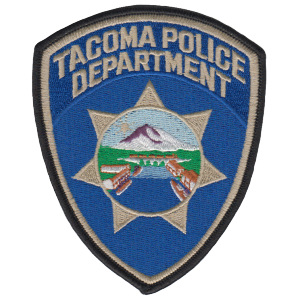Only a fool would try to argue against the virtues of putting more cops on the streets. It’s like arguing that your family wouldn’t benefit by expanding a basic home security system to include remote surveillance, motion sensors and a panic button.
Such extras hold value because they increase the perception, and perhaps the reality, that bad guys won’t prey on your loved ones.
When it comes to public safety, more is always better.
But what if you couldn’t afford to expand the home security system unless you slashed other core parts of your household budget? Would you go ahead and do it? And would you feel OK giving additional money to a security company that had a recent history of costing you more for less?
The analogy, while imperfect, helps illustrate a dilemma facing Tacoma leaders.
The Police Department, its rank-and-file officer union and several City Council members are all lobbying for more cops – as many as 30 a year for the next four years, if the union gets its way. At a minimum, they want to see 60 positions restored that were lost during the recession.
The request sounds quite reasonable, all other things being even, which they never are in the zero-sum game of municipal budgets.
Not surprisingly, Tacoma residents interviewed in a union-commissioned survey last month reacted enthusiastically to the idea of adding cops. Fifty two percent of respondents said Tacoma doesn’t have enough officers and detectives to keep crime under control. Sixty nine percent supported boosting the police budget to pre-recession levels.
What the survey failed to mention was that police payroll is actually higher today than it was back then. Taxpayers spent more on total TPD salaries in 2015 ($39.9 million) than they did in 2011 ($39.2 million), despite fewer police employees collecting paychecks now, according to a recent News Tribune report.
Much of the pay went to street cops who do a dangerous, physically and emotionally demanding job – now more than ever, with only 338 officers on the force compared to 398 in 2008. And they are well compensated for it through a complex series of step increases, incentive bumps and extra-duty pay, on top of their hourly base wages and cost-of-living adjustments.
All told, the average pay for a Tacoma police officer was $88,505 in 2015, compared to $73,875 in 2011, according to city payroll data. That’s a 20-percent increase, and it doesn’t factor in overtime.
With rising prices like that, Tacoma can’t afford to hire scores of additional cops. Not without exacting a pound of flesh from other city services and fattening the 63-percent share of Tacoma’s budget already absorbed by public safety.
Raiding other parts of the budget defies good sense, given that the city must solve a $6.7 million deficit. It also faces demands for new investments, such as helping open a psychiatric hospital in Central Tacoma (which will help police do their jobs better).
The cold truth of budget cuts hit home last week when the library director said she might have to close another branch or perhaps the Northwest Room, the city’s historical treasury.
Elected council members say they want to add police jobs but are baffled how to do it.
“I can’t tell you how we get there,” said Councilwoman Victoria Woodards.
For starters, they could use a time machine. Plus, a police union willing to make concessions.
The origins of this dilemma can be traced to former City Manager Eric Anderson. In 2008, he authored a generous “compensation philosophy” to ensure most city employees would be paid better than about 70 percent of the market average. That philosophy has something to do with why the number of city employees earning six figures has increased 61 percent over the last five years.
It also was the backbone for a police contract that requires wages be set higher than six other large police departments. This sweet incentive for Tacoma cops has left a sour aftertaste for the city because of ever-upward pressure on payroll.
In 2010, Anderson floated a pollyannish budget that assumed sales taxes would recover and employee unions wouldn’t insist on pay raises. Both assumptions proved false, the budget crashed and current City Manager T.C. Broadnax was left to clean up a $60 million mess.
Where does the city go from here? Restoring some of the 60 lost police jobs is inevitable. Residents are fed up with property crime, and political momentum is mounting. Former Tacoma officer Brian O’Neill makes a strong case on today’s op-ed page that once-effective special law-enforcement units have been cannibalized.
But Tacoma can’t sustain a culture of intractable labor contracts and idealistic employee compensation philosophies. The bill will come due with a vengeance just as surely as it did five years ago.
When it comes to public safety IOUs, more is never better.


